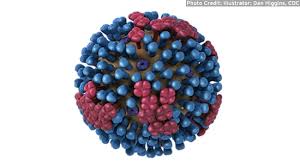
Global Public Health Risk of Influenza A(H5N1) Remains Low, According to FAO-WHO-WOAH
The FAO, WHO, and WOAH have assessed the global public health risk of Influenza A(H5N1), commonly known as avian flu, and determined it to be low at this time. Despite ongoing transmission among animals, the risk of infection for humans, particularly those in occupations with exposure to infected animals, is considered to be low to moderate. The level of risk for exposed individuals largely depends on the mitigation measures in place.
While human infections remain rare, they are primarily linked to direct contact with infected animals or contaminated environments. A small number of human cases have been reported so far, and additional cases are expected to emerge in the future as a result of exposure. However, experts emphasize that the overall global public health impact of these cases remains minor.
FAO, WHO, and WOAH continue to monitor the situation and recommend that those working closely with animals follow appropriate safety protocols to minimize their risk of infection.